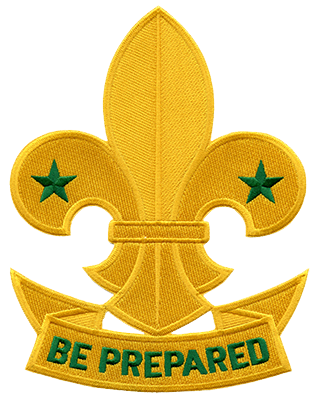The phrase "last responsible moment" is coming to mind, re this entire thread. Coding Horror quotes Poppendieck: "delay commitment until the last responsible moment, that is, the moment at which failing to make a decision eliminates an important alternative"
In Lean Software Development: An Agile Toolkit, Mary and Tom Poppendieck describe a counter-intuitive technique for making better decisions: Concurrent software development means starting development when only partial requirements are known and developing in short iterations that provide the...

blog.codinghorror.com
Hi,
"But I won't have a project-by-project, action-by-action, battle plan."
What will you have instead?
I thought I responded to this post, but apparently not?
For the fall gardening, I'll probably do:
- VISION: A few projects that essentially produce project support material in the form of lists and drawings of the current reality and the goal. So, a list or drawing of what's currently growing where, a list or drawing of what I'd like to change that to, lists of spots that would need particular things to meet that goal--half-inch center watering, for example, or overhead supports.
So that's a lightly documented vision of what, at one particular moment, I thought I would like.
Circumstances will change--I'll discover that what I thought was a drought-tolerant plant actually isn't, I'll update my estimate of the full sun/part sun line at the back of the garden (has it really moved TWELVE FEET(?!) or are the lagging roses lagging for some other reason?), I'll start thinking through the fact that in blinding heat like this year's, part sun space may be a more valuable resource than full sun space, and so on.
So the vision won't be fully implemented. It's just a vague guide to keep me from forgetting what I wanted.
- DELIBERATELY PIECEMEAL IMPLEMENTATION: Then I'll work on things, one or two projects at a time. I will, to some extent, do that with an eye on the overall vision, but never to a degree that slows down the current project(s) or ties me down to any significant degree for future projects.
For example, when I turn my attention to consolidating the raspberries (Why DO I have raspberries in three places? Why did I plant them so close together?) I'll buy watering tubing. It will just take a few minutes to estimate how much more tubing I'll need for the whole garden, and order it all at once. And if I change my plans, I'm pretty confident I'll use that tubing in future years, so it doesn't tie me down.
If I'm going to mailorder some raspberry plants, it would, in theory, be similarly efficient to plan and order all of my mailorder plants at the same time, to minimize orders and thus minimize shipping costs. But that's just too many moving parts and too many unknowns. I can confidently order the raspberries after their space is cleared, turned, amended, and mellowing, just waiting to be planted. But no matter how sure I am that I'm GOING to clear that other spot and plant gooseberries, it's not wise for me to commit myself before that work is done.
Looking back at "the moment at which failing to make a decision eliminates an important alternative": failing to decide about the gooseberries when I'm ordering the raspberries eliminates an UNimportant alternative--it eliminates the option of saving a little shipping. Not worth it.
And fussing over some global plant mailorder plan is likely to interfere with the raspberry project--as just one negative outcome, I'm likely, months from now, to realize that I ordered my second choice rasperries to get my first choice gooseberries and now I don't even want to plant gooseberries any more.
On the other hand, when I order my first seeds for the year, I'm likely to order a bunch of others. Seeds can sit around a while. Seeds are cheap. Seeds sell out. By not ordering seeds, I may be eliminating access to those seeds. By ordering them and not using them, I'm costing myself very little money or space. I'm cool with making the decision to order those seeds early--it's not tantamount to making the decision to USE those seeds.
On the other hand, when I realized that all of my usual seed sources were out of Fortex bean seeds this year, I ordered them from two sources without pausing for even a moment to add things to those orders, in case they sold out too.
I'm drifting. I guess the short answer would have been: I plan ahead only to the extent of documenting a lightly described vision, and then I work toward that vision project by project, rather than planning all those projects at once.


